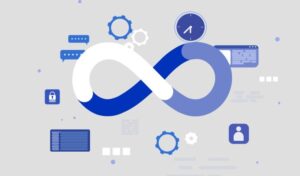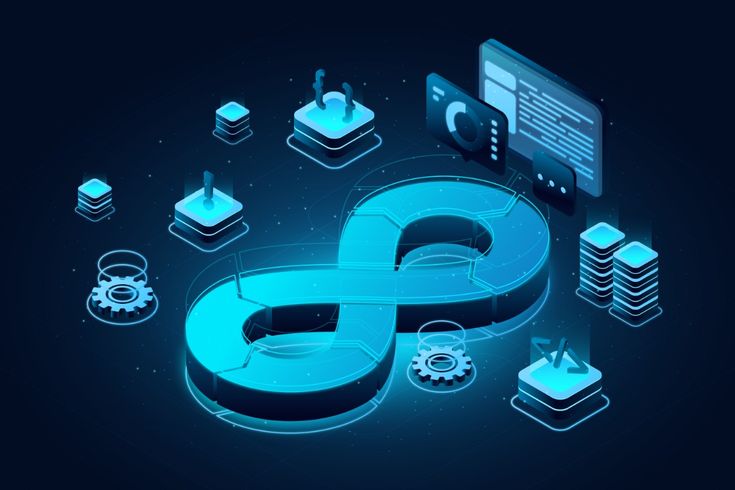The integration of AI in DevOps has fundamentally transformed software delivery, yet most organizations focus only on surface-level automation while overlooking profound challenges that artificial intelligence uniquely addresses. As development cycles accelerate and infrastructure complexity grows exponentially, AI DevOps automation emerges not as optional enhancement but as essential capability for maintaining competitive velocity and operational stability.
Understanding what is AI in DevOps requires recognizing how machine learning algorithms, predictive analytics, and intelligent automation systems work together to eliminate bottlenecks, predict failures, and optimize resource utilization across the entire software development lifecycle.
The Evolution of Intelligent DevOps
Modern AI DevOps tools and platforms leverage sophisticated algorithms to analyze vast datasets generated throughout development pipelines, identifying patterns invisible to human operators. According to recent industry analysis, organizations implementing AI-powered DevOps solutions experience 40% faster deployment frequencies and 60% reduction in change failure rates compared to traditional approaches.
The future of DevOps AI extends beyond simple automation to autonomous systems capable of self-healing infrastructure, predictive capacity planning, and intelligent code optimization. Leading technology firms now deploy explainable AI for DevOps, ensuring transparency in automated decision-making while maintaining human oversight for critical operations.
Challenge 1: Invisible Performance Degradation Patterns
Traditional monitoring systems alert teams when metrics cross predefined thresholds, but this reactive approach misses gradual performance erosion that accumulates over weeks or months. AI-powered monitoring in DevOps identifies subtle degradation patterns by analyzing historical trends, resource consumption correlations, and user behavior anomalies.
How AI Solves This:
Machine learning in DevOps establishes dynamic baselines that adapt to normal operational variations, distinguishing between expected fluctuations and genuine performance issues. Predictive analytics in DevOps forecast resource exhaustion events days or weeks before they impact users, enabling proactive optimization rather than emergency intervention.
Intelligent systems correlate seemingly unrelated metrics—database query times, memory usage patterns, network latency variations, and application response rates—revealing causal relationships that manual analysis would never uncover. This holistic visibility enables teams to address root causes rather than treating symptoms.
For organizations seeking iOS AI DevOps development services or Android AI DevOps development services, platform-specific performance characteristics receive specialized analysis optimized for mobile deployment environments.

Challenge 2: Deployment Risk Assessment and Prediction
Every deployment carries inherent risk, yet traditional DevOps practices rely on testing protocols that cannot anticipate every real-world scenario. The gap between staging environments and production realities creates blind spots where critical failures emerge post-deployment.
AI-Driven Solution:
AI for CI/CD pipelines analyzes deployment histories, code change patterns, testing coverage gaps, and production incident correlations to calculate risk scores for each release candidate. Intelligent deployment tools automatically flag high-risk changes based on factors including affected code paths, recent incident history in similar components, team experience levels, and current system load conditions.
Predictive models trained on thousands of previous deployments identify code patterns historically associated with production failures, even when individual test suites pass successfully. This capability proves invaluable for complex microservices architectures where component interactions create emergent behaviors difficult to test comprehensively.
AI DevOps pipeline optimization includes automated rollback triggers when post-deployment metrics deviate from predicted patterns, minimizing mean time to recovery and protecting user experiences from faulty releases.
Business Impact: Companies implementing AI-powered deployment risk assessment report 73% reduction in production incidents and 82% improvement in deployment confidence metrics.
Challenge 3: Root Cause Analysis in Complex Distributed Systems
Modern applications comprise hundreds of interconnected services, containers, databases, and third-party integrations. When failures occur, identifying root causes within this complexity consumes hours or days of expert engineering time while systems remain degraded or offline.
AI Troubleshooting Breakthrough:
AI troubleshooting in DevOps pipelines employs graph neural networks and causal inference algorithms to map service dependencies, analyze log correlations across distributed components, and trace failure propagation paths backward to originating issues. Natural language processing extracts relevant information from unstructured log data, error messages, and monitoring alerts.
Intelligent systems learn from previous incident resolutions, building knowledge graphs that connect symptoms to root causes based on organizational history. When new incidents occur, AI suggests probable causes ranked by likelihood, dramatically accelerating diagnosis and resolution.
Explainable AI ensures recommendations include reasoning chains showing which evidence contributed to conclusions, enabling engineers to validate AI suggestions and build confidence in automated analysis. This transparency proves essential for maintaining operational control while leveraging AI capabilities.
Challenge 4: Optimal Resource Allocation Across Dynamic Workloads
Cloud infrastructure costs escalate rapidly when resources remain over-provisioned for peak capacity, yet under-provisioning risks performance degradation during demand spikes. Manual capacity planning struggles with workload unpredictability and the complexity of multi-tier application architectures.
AI-Powered Optimization:
Predictive maintenance AI DevOps systems forecast resource requirements hours or days ahead based on historical usage patterns, business calendars, marketing campaigns, seasonal variations, and correlated external factors. Machine learning models continuously refine predictions as new data accumulates, adapting to changing application behaviors.
Intelligent autoscaling responds proactively rather than reactively, provisioning resources before demand materializes while avoiding wasteful over-allocation. AI algorithms optimize not just quantity but resource types—selecting appropriate instance classes, storage tiers, and network configurations matched to specific workload characteristics.
For organizations utilizing AI DevOps development services in UAE, regional traffic patterns, cultural event calendars, and local business cycles receive specialized consideration in capacity forecasting models.
Cost Impact: AI-driven resource optimization typically reduces infrastructure spending by 35-50% while simultaneously improving performance consistency and user satisfaction scores.
Challenge 5: Security Vulnerability Detection in Rapid Release Cycles
Accelerated deployment frequencies create security challenges as traditional vulnerability scanning struggles to keep pace with continuous delivery demands. Manual security reviews become bottlenecks, while automated scans generate overwhelming false positive volumes that teams learn to ignore.
AI Security Integration:
AI for software development lifecycle embeds intelligent security analysis throughout development workflows, scanning code commits, dependency updates, configuration changes, and runtime behaviors for vulnerability indicators. Machine learning models trained on exploit databases, CVE repositories, and organizational incident history identify both known vulnerabilities and suspicious patterns suggesting zero-day risks.
Behavioral analysis monitors deployed applications for anomalous activities indicating compromise or exploitation attempts, correlating security signals across infrastructure layers. AI systems prioritize vulnerability remediation based on exploitability assessments, potential business impact, and available mitigation options.
Integration with intelligent deployment tools enables automated security gates that block high-risk releases while providing detailed explanations helping developers address identified issues rapidly. This balance maintains delivery velocity while strengthening security posture.
Understanding AI DevOps Benefits: The Competitive Advantage
Organizations embracing AI DevOps automation gain compound advantages extending beyond individual challenge solutions. The AI DevOps benefits include accelerated innovation cycles, improved system reliability, optimized resource utilization, enhanced security posture, and most critically—engineering teams freed from operational firefighting to focus on strategic initiatives.
Teams deploying iOS AI DevOps development services and Android AI DevOps development services report particular advantages in mobile application quality, faster feature delivery, and superior user experience consistency across device ecosystems.

Implementing AI DevOps: Practical Next Steps
Successful AI DevOps implementation requires strategic planning, appropriate tooling, and cultural readiness for AI-augmented workflows. Begin with focused pilot projects addressing specific pain points rather than attempting wholesale transformation simultaneously.
Evaluate AI DevOps tools and platforms based on integration capabilities with existing infrastructure, explainability features enabling team confidence, and vendor expertise in your industry vertical. Prioritize solutions offering incremental value realization rather than requiring extensive upfront investment before demonstrating returns.
Transform Your DevOps with AI: Take Action Today
The hidden challenges AI addresses in DevOps represent the difference between operational survival and competitive dominance in software-driven markets. Whether managing enterprise applications, mobile platforms, or cloud-native microservices, AI capabilities provide essential advantages for maintaining velocity and reliability at scale.
Ready to unlock AI DevOps potential for your organization?
- Request a consultation with AI DevOps specialists to assess your current challenges
- Explore AI DevOps development services in UAE tailored to regional requirements
- Download our AI DevOps implementation guide for practical deployment roadmaps
- Schedule a platform demo to experience intelligent automation capabilities
- Contact our expert team to discuss custom AI DevOps solutions
The future of DevOps AI is not distant possibility but present reality delivering measurable results for forward-thinking organizations. Begin your AI DevOps transformation today and discover how intelligent automation solves the challenges holding your development velocity back.

